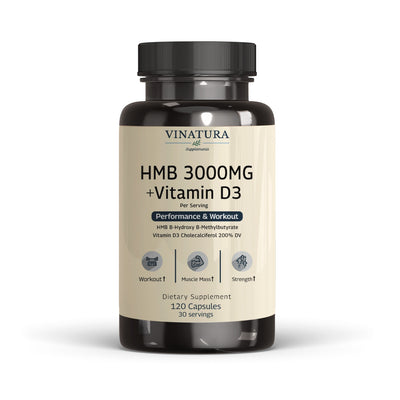
Pros and Cons of Creatine for Females: Should Women Take It?
Creatine can offer unique benefits for women—supporting strength, energy, mental health, and even reproductive function. Research shows that women may respond especially well to creatine due to lower natural stores and hormonal influences, including during menstruation and menopause.
However, some may experience mild side effects like water retention or digestive discomfort. While long-term studies in women are limited, current evidence suggests creatine is both effective and generally safe when used appropriately.
This article breaks down the key pros and cons to help assess whether creatine is a good fit for female health and fitness goals.
Before exploring further, please read the disclaimer located at the end of this webpage.
Table of Pros and Cons of Creatine for Females
Creatine holds significant promise for women—not only in boosting muscle strength and training performance but also in enhancing mental health and energy levels. However, like any supplement, it comes with certain limitations when used by females:
|
Pros |
Cons |
|
May help increase strength and lean muscle mass |
May cause weight gain due to water retention |
|
May contribute to enhancing workout performance |
Can lead to digestive discomfort in some individuals |
|
Supports brain function and mood |
Lack of long-term studies focused on women |
|
May support a decrease in fatigue and boost energy |
May mildly affect hormonal balance |
|
Benefits reproductive health and menopause support |
Potential interactions with certain medications or medical conditions |
To better understand how creatine can support—or challenge—women’s health, let’s dive deeper into these pros and cons in the following sections.
Should Females Take Creatine?
In short: No one in the scientific or medical community can justifiably claim that women should not or cannot take creatine. This supplement can be suitable for females of all ages—from young women with high training volumes to peri-menopausal women undergoing significant physiological changes.
This is because hormones and other physiological differences between men and women lead to distinct effects of creatine in females. Specifically, women tend to have lower baseline creatine stores, which means they may experience more noticeable improvements in physical performance and mood when supplementing.
These effects are also influenced by estrogen, which causes creatine metabolism and effectiveness to vary across the different phases of the menstrual cycle—before, during, and after menstruation.
Research shows that creatine supplementation may be particularly beneficial during key hormonal stages such as menstruation, postpartum recovery, and menopause. In fact, creatine appears to enhance strength and exercise performance in premenopausal women (Smith-Ryan et al., 2021).
However, like any supplement, creatine usage should be personalized. Dosage, frequency, benefits, and potential side effects must be evaluated based on each individual’s goals, physiology, and health conditions.
To clarify this further, let’s break down: What exactly are the benefits of creatine for women, and how does it work in the female body?
What are the Benefits of Creatine for Women?
Muscle health and Body Mass
Creatine has been suggested to boost muscular strength and lean body mass without increasing fat, in both men and women. Despite having lower endogenous creatine stores, studies show that women can still achieve comparable lean mass gains when combining creatine with resistance training (Tarnopolsky et al., 2000).
Another study involving 30 women aged 58–71 found that creatine supplementation significantly improved leg press (+5.2 ± 1.8 kg), chest press strength (+1.7 ± 0.4 kg), lean mass (+0.52 ± 0.05 kg), and functional walking performance (Gotshalk et al., 2007).
In community discussions, such as on Reddit, many female users report noticeable improvements in muscle tone and training output just weeks after beginning creatine supplementation.*
Learn more: Does Creatine Help With Weight Loss?
Reproductive health
Creatine shows potential in supporting reproductive health across all stages of the female reproductive cycle—including menstruation, pregnancy, and perimenopause.
A large-scale observational study analyzing data from over 4,000 women suggested that those with higher creatine intake had more regular menstrual cycles, lower risk of macrosomia, fewer pelvic infections, and improved reproductive markers overall (Ostojic et al., 2020) [4].
While the study had methodological limitations, the correlation points to creatine's positive influence on female reproductive function.
Mental health

Mental health disorders, particularly depression, disproportionately affect women. In this area, creatine has shown promising effects.
One study revealed that women with lower dietary creatine intake had significantly higher rates and severity of depression [5]. This suggests that maintaining adequate creatine levels may help support mood balance and cognitive resilience.
Energy Levels
One of creatine’s key benefits lies in its role in ATP production—ATP being the primary energy currency of cells. This enhancement in cellular energy metabolism improves endurance and reduces fatigue, especially during menstruation when women often experience greater physical depletion.
Studies confirm that creatine is crucial for high-energy phosphate metabolism and is directly linked to exercise performance and interventions targeting energy-deficiency disorders [6].
Hormonal Health Support
A 2023 study by Gordon et al examined the effects of creatine monohydrate supplementation (20g/day for 5 days) on recovery and estrogen levels across different hormonal phases of the menstrual cycle. Findings revealed [7] :
- No significant differences in estrogen levels between low- and high-hormone phases.
- However, the creatine group showed a slight upward trend in estrogen levels during the luteal (high-hormone) phase compared to placebo.
These preliminary results suggest that creatine might help stabilize estrogen fluctuations across the menstrual cycle—though more targeted research is needed to confirm this mechanism.
What are the Risks and Side Effects of Creatine for Women?

Fundamentally, creatine is considered a relatively safe supplement and has been extensively studied across numerous domains. However, like any supplement, it does carry certain risks and potential side effects that are generally undesirable. While not overly common, the following side effects should still be taken into account:
- Weight gain due to water retention: This is often reported by some users who feel "bloated" or "puffy" while taking creatine. This is a result of creatine drawing water into muscle cells during the saturation process.
- Digestive disturbances: Symptoms such as bloating, diarrhea, and nausea may occur, particularly when creatine is taken in high doses or on an empty stomach.
- Hormonal effects: Although there is no definitive evidence, some users report slight mood changes or alterations in their menstrual cycle while using creatine.
- Drug interactions: Creatine may interact with diuretics, NSAIDs, or medications that affect kidney function.
On platforms like Reddit, in addition to water-related weight gain and minor menstrual cycle changes, some users also reported occasional bloating, diarrhea, or redness around the eyes*. While not all of these symptoms can be definitively attributed to creatine, they are worth considering as anecdotal references before starting supplementation.
In response to the question “What will happen if I take too much creatine?” on Quora, the author Mike Mark highlighted potential issues as follows:
“Usually diarrhea, nausea, vomiting, sweating, stomach cramping. This is about as bad as it gets unless you have WAY too much, in which case you will probably want to get yourself to the ER. But you would have to take a lot of creatine to do this. If you took like 3 scoops, you will have the above side effects; if you took 10 scoops, you will probably have to find the ER.”*
On a similar thread on Reddit, a user by the nickname justinw05 shared his experience of taking creatine without drinking enough water:
“Lotsa water. Lots and lots and lots of water. I made the mistake of not drinking enough water and taking too much creatine. I swear to you, I thought I was trying to piss a boulder and all that came out was an itty bitty kidney stone the size of a grain of sand. My doctor said it could have been 3 times as big as it was… I could not imagine...”*
How Should Women Take Creatine?

Generally, the standard dose of creatine—regardless of gender—is around 5 grams per day. If you're concerned about how your body might respond or want to minimize potential side effects, you can start with a gradual dosing approach of around 3–5 grams during the first week.
Creatine can be taken at any time of day. However, post-workout is often preferred, particularly when paired with a carbohydrate-rich meal to improve absorption and training performance.
Research such as the study by Steenge et al. (2000) shows that combining creatine with carbohydrates—or carbohydrates plus protein—can double muscle creatine uptake compared to taking it alone.
It is recommended to take creatine with water and avoid consuming it on an empty stomach to reduce potential digestive discomfort. Also, a loading phase is not strictly necessary, especially if you're not seeking immediate results. A more gradual start can make it easier for your body to adapt to the supplement.
Who Should Not Take Creatine Supplements?
You shouldn't choose supplements carelessly. Prioritize best creatine supplements from reputable and transparent brands that provide clear Supplement Facts and come with reliable quality certifications.
While creatine is generally safe for the majority of the population, it should not be taken indiscriminately. Certain individuals should consult a healthcare professional before initiating creatine use, including:
- Individuals with kidney problems or a history of renal or urinary disorders.
- Pregnant or breastfeeding women.
- People taking medications that impact kidney function or affect blood pressure.
- Individuals with uncontrolled metabolic conditions such as diabetes.
Conclusion
Creatine is not just a supplement for male athletes. In fact, it holds significant potential as a performance and wellness enhancer for women. With benefits ranging from increased strength and lean muscle mass to improved neurological, hormonal, and reproductive health, creatine can substantially contribute to overall quality of life.
However, as with any nutritional intervention, its use should be deliberate, informed, and personalized. Consulting healthcare professionals and being fully aware of what you're introducing into your body is essential. Creatine can be a smart move—but only when you truly understand what you're doing with your health.
Testimonial Disclaimer
*The testimonials presented on this website are provided by individuals based on their personal experiences with our products. These testimonials represent individual opinions and experiences, which may not be typical or applicable to all users of our products. Results may vary depending on a variety of factors, including individual health, lifestyle, and adherence to product usage instructions.References
- [1] Smith-Ryan, Abbie E., et al. “Creatine Supplementation in Women’s Health: A Lifespan Perspective.” Nutrients, vol. 13, no. 3, Multidisciplinary Digital Publishing Institute, Mar. 2021, pp. 877–77, https://doi.org/10.3390/nu13030877.
- [2] Tarnopolsky, Mark A. “Gender Differences in Metabolism; Nutrition and Supplements.” Journal of Science and Medicine in Sport, vol. 3, no. 3, Elsevier BV, Sept. 2000, pp. 287–98, https://doi.org/10.1016/s1440-2440(00)80038-9.
- [3] Gotshalk, Lincoln A., et al. “Creatine Supplementation Improves Muscular Performance in Older Women.” European Journal of Applied Physiology, vol. 102, no. 2, Springer Science+Business Media, Oct. 2007, pp. 223–31, https://doi.org/10.1007/s00421-007-0580-y.
- [4] Ostojic, Sergej M., et al. “Association between Dietary Intake of Creatine and Female Reproductive Health: Evidence from NHANES 2017–2020.” Food Science & Nutrition, vol. 12, no. 7, Wiley, Apr. 2024, pp. 4893–98, https://doi.org/10.1002/fsn3.4135.
- [5] Bakian, Amanda V., et al. “Dietary Creatine Intake and Depression Risk among U.S. Adults.” Translational Psychiatry, vol. 10, no. 1, Springer Science and Business Media LLC, Feb. 2020, https://doi.org/10.1038/s41398-020-0741-x.
- [6] Ellery, Stacey J., et al. “Creatine for Women: A Review of the Relationship between Creatine and the Reproductive Cycle and Female-Specific Benefits of Creatine Therapy.” Amino Acids, vol. 48, no. 8, Springer Science+Business Media, Feb. 2016, pp. 1807–17, https://doi.org/10.1007/s00726-016-2199-y.
- [7] Gordon, Amanda N., et al. “The Effects of Creatine Monohydrate Loading on Exercise Recovery in Active Women throughout the Menstrual Cycle.” Nutrients, vol. 15, no. 16, Multidisciplinary Digital Publishing Institute, Aug. 2023, pp. 3567–67, https://doi.org/10.3390/nu15163567.
- [8] Steenge, G. R., et al. “Stimulatory Effect of Insulin on Creatine Accumulation in Human Skeletal Muscle.” American Journal of Physiology-Endocrinology and Metabolism, vol. 275, no. 6, American Physiological Society, Dec. 1998, pp. E974–79, https://doi.org/10.1152/ajpendo.1998.275.6.e974.
Author

Product Disclaimer
Including an ingredient or study does not evaluate, endorse, or recommend any Vinatura product or any third-party product. Some ingredients discussed may not be used in any Vinatura product.
The content of the articles has not been evaluated by the Food and Drug Administration (FDA) and is not intended to promote or endorse any specific product. Any products sold on this website are not intended to diagnose, treat, cure, or prevent any disease.
Opinions and Endorsements
Any claims, statements, or opinions expressed in the articles are those of the author(s) and do not necessarily reflect the views or opinions of the manufacturers of the dietary supplement products. The products sold on this website are separate from the content of the articles and are not directly endorsed or associated with the information presented here.
Liability Disclaimer
The author(s) of the articles, website, and manufacturers of the dietary supplement products do not assume any liability for any potential consequences arising from the use of the information provided in the articles. Ingredient effects, dosages, and safety vary by individual, formulation, and context; some ingredients interact with medications or may be unsuitable during pregnancy or lactation. It is recommended that individuals consult with a qualified healthcare professional before making any dietary or lifestyle changes, including the use of dietary supplements.
Product Usage
Please refer to the product labels and packaging for specific usage instructions and guidelines for the dietary supplement products sold on this website.
Customer Support
For any concerns or questions regarding the dietary supplement products, please contact our customer support team, who will be more than happy to assist you.






Leave a Comment
Be the first to comment.
What do you think?